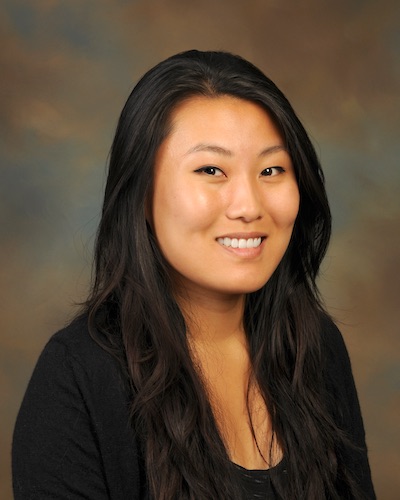
Mengyu Wu, Ph.D.
Doctoral Thesis: Highs, Lows, and Intermediates Revealed by Single-Particle Cryo-Electron Microscopy at 200 keV
Undergraduate Institution: Wellesley College
Noteworthy Publications: "Sub-2 Å Resolution Structure Determination Using Single-Particle Cryo-EM at 200 keV," Journal of Structural Biology: X (2020); "High-resolution structure determination of sub-100 kDa complexes using conventional cryo-EM," Nature Communications (2019);
Honors & Awards: National Science Foundation (NSF) Graduate Research Fellowship (2018); The Biophysical Society Student Research Achievement Award (2018); The Microscopy Society of America Student Research Award (2019)
Favorite Aspects of Graduate Studies: "My favorite part about Scripps is how collaborative the environment is. Everyone is super nice, always willing to help out and really passionate about science. Because of that, I never felt like there were any obstacles in terms of resources or support, which really let me focus on doing the type of research that I wanted to do. Another thing is that the facilities we have are really great, and that almost makes it hard to leave because it's hard to find such a good research environment anywhere else. Finally, I think in the grad program, you are exposed to many different types of personal and scientific backgrounds, which makes for a pretty well-rounded Ph.D. experience."
Next Steps: "I've accepted a position at the Institute for Protein Design in Seattle, Washington. I'm very excited to be leading the EM efforts at the institute to study de novo design proteins and protein nano materials. I am hoping to stay at the cutting edge of this technique, and also working on things that have a more translational aspect to them."
Be sure to join us at 10 a.m. PDT on Friday, July 31 for our Virtual Commencement Ceremony! Wu's advisor and mentor, Prof. Gabriel C. Lander, will deliver a few words (as will Wu) about her graduate experience, and viewers can learn about our 43 other 2020 graduates, who are now setting out to build careers that will impact the future of biomedical research.

